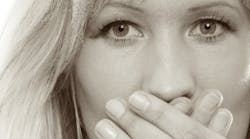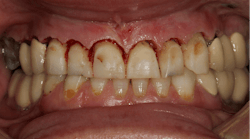UB gets $1 million HRSA grant to educate nurses on oral health
The University at Buffalo School of Nursing has been awarded a $1,120,953 Health Resources and Services Administration (HRSA) Advanced Nursing Education training grant to enable nurse practitioners to work with dental students in interdisciplinary teams, sharing educational and practice experiences that improve oral and systemic care. The grant is funded from July 2013 to June 2016.RELATED |UCLA Dentistry receives $5 million to study extracellular RNA in salivaRELATED |How general dentists and periodontists can provide personalized preventive care for patients The project director is Nancy Campbell-Heider, PhD, associate professor of nursing, chair of the graduate nursing department and director of the MS/doctor of nursing practice (DNP) program, who says that this year the HRSA request for proposals mirrored the Institute of Medicine’s (IOM) call for greater emphasis on educational programs that include interprofessional education and collaborative experiences for health care providers. “Coincidently, two of our schools — UB nursing and dental medicine —were already discussing the increasingly compelling evidence regarding the connection between lifestyle and pathophysiological factors such as oral health, dental disease and multiple chronic conditions (MCC),” Campbell-Heider says. “Our discussions ultimately lead to the partnership between the two schools that underscore this grant.” These collaborations will be unique experiences for advanced practice DNP students who usually collaborate with medical doctors, says Campbell-Heider. “Working with dentists and dental students will be a new venture.” Marsha Lewis, PhD, RN, dean of the School of Nursing, said she was gratified by the award because HRSA grants are extremely competitive and difficult to get, and also because she is a strong advocate for interprofessional education in the health sciences. “Receiving the HRSA Advanced Nursing Education Training Grant offers the School of Nursing a great opportunity to collaborate with the School of Dental Medicine,” says Lewis. “We are excited to join our colleagues in dental medicine to improve health and wellness in the community.” Why train advanced practice nurses about oral health? Campbell-Heider says that 27% of Americans have more than one chronic disease and this proportion consumes more than 66% of all health-care resources. Some of these chronic conditions are related to oral health and, as recent research has demonstrated, oral diseases such as periodontitis can affect the outcomes of systemic illnesses such as diabetes and heart disease. However, access to high-quality oral health care for primary care patients is limited in rural and underserved areas with health- and dental-provider shortages, she says. “Just as today’s dental students are being prepared to assess their patients with MCC beyond the mouth — such as elevated blood pressure and diabetes — advanced practice nurses will be expected to assess early signs of periodontal disease in adults and or apply fluoride varnish to children who lack dental care.” In addition to Campbell-Heider, other members of the team from the School of Nursing include Tammy Austin-Ketch, PhD, Susan Bruce, PhD, Patricia Nisbet, MS, and Yvonne Scherer, EdD. UB School of Dental Medicine faculty on the training grant are Donald Antonson, DDS, associate dean for academic affairs and professor in restorative dentistry, and Patrick Anders, DDS, MPH, director of oral medicine and assistant professor of oral diagnostic sciences. Karen Zinnerstrom, PhD, coordinator for training and evaluation in the UB School of Medicine and Biomedical Sciences, will work with the advanced practice nursing and dental students on simulated team scenarios and other evaluations of their knowledge and interprofessional collaborative skills. Thomas Feeley, PhD, professor and chair of the UB Department of Communications, will serve as the evaluator on the project.Visit the University at Buffalo's website for more information.


